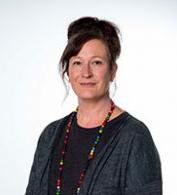“Organisations need to be responsible – they can’t just exist on making a profit. They need to be aware of their social and environmental impact,” said Dr Terese Fiedler, lecturer in accounting at the Tasmanian School of Business and Economics.
"We can’t ignore the importance of their economic impact – they need to make a profit in order to survive but they need to be highly aware of their stakeholders’ needs, and this comes under a broad umbrella of accountability.”
By disseminating their accountability, organisations can highlight the risks and opportunities that go beyond the financial aspects of their business. This additional transparency can help build the trust of the public by giving them the information they need to make informed investment decisions.
“Sustainability and Integrated Reporting reach beyond the traditional form of corporate reporting,” said Dr Fiedler.
“For Sustainability Reporting, it’s about recognising the accountability of an organisation across the areas of social, environmental, and economic impacts, whereas Integrated Reporting communicates how an organisation creates value over time, not just financial value.”
After more than a decade as an accounting lecturer, Dr Fiedler is now splitting her time between teaching her postgraduate students at the University of Tasmania, and researching organisational accountability across a range of local industries.
“I wanted to predominately research issues of organisational accountability in a Tasmanian setting, but in areas that still have wider implications for other communities,” she said.
Tasmania has a unique environment, and I believe that when you’re living in a regional area, you have a responsibility to be part of that community. The first thing that came to mind was my involvement with the Cygnet Folk Festival.
The annual Cygnet Folk Festival attracts thousands of people to the quiet country town of Cygnet in the Huon Valley of Tasmania.
Each year, Cygnet's 929 inhabitants play host to between 400 and 500 musicians as part of the three-day event. Masterclasses and workshops are run for the roughly 6,000 patrons, who also have the opportunity to participate in choirs, street parades, and poetry readings.
For the past five years, Dr Fiedler volunteered as a Clean Team Coordinator and more recently the Sustainability Manager of the festival, where she’s been investigating the impact that such a huge and sudden influx of people is having on the local community.
“It was really important to understand what the social impact was, and how people were feeling about the festival. And there’s also the environmental impact that must be considered,” Dr Fiedler explains.
“We found from the preliminary results of the study that stakeholders think highly of the festival in terms of its ability to generate social capital. That’s something we can measure and report to our community.”
Dr Fiedler is now interested in exploring issues of social accountability within her own industry – specifically with regards to Indigenous access to university.
“There are only 38 Indigenous accounting professionals out of 200,000 in Australia, and we’re wondering why, in Tasmania, where our proportion of Indigenous residents is higher than the mainland, we actually have relatively fewer Indigenous students enrolling in accounting,” she said.
“It’s all about accountability, and this time, it’s in education.”
In her own teaching, Dr Fiedler gives her postgraduate students an “end-user perspective” on accounting. While they may understand the basics of how to prepare different types of reports, there is a focus on what they can do with these reports as business people.
That’s when students start realising that you have to speak the language of accounting.
“They
have to have that knowledge so they can take advantage and do the right thing
in business, and that can go right back to our social, environmental, and of
course, economic impacts."
Interested in conducting your own research? Apply now to become a research student.
Find out more about studying Business and Economics here.
